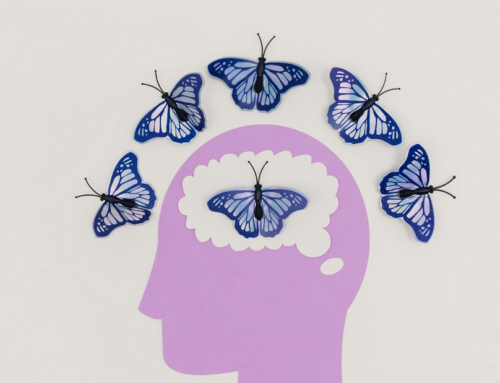With the school year winding down, end-of-the-year testing and final exams are in full-force throughout area schools. If you’re looking for ways to improve your young person’s memory of learned material, reading aloud is a simple, surprisingly effective skill to add to their studying tool box. In several studies, reading materials aloud has been shown to improve memory and assist in long-term recall.
Understanding Memory
When we receive information, we use three ways – visual (an image), acoustic (a sound), or semantic (a meaning) – to store the information as a memory. Repeating information aloud to yourself would be considered an acoustic way of encoding, or storing, the memory. We do this often when we study – we practice by repeating items in a list over and over again.
The way we store information impacts how we retrieve that information. According to psychological research, the average adult can store around 5-9 items in their short-term memory.3 However, these 5-9 items could involve a combination of 5-9 pieces of information – it could be quite long! Regardless, short-term memory only lasts for about 30 seconds or less. Long-term memory, meanwhile, can stick around in our psyche for an unlimited amount of time.
When we need to retrieve memories from our short or long-term memory, we quickly realize the limitations of short-term memory. If someone is asked to recall an acoustic, short-term memory (something they heard), for instance, that person will remember the information in a very specific way. If they’re recalling a certain word in a list, for example, they’ll go through the list in order until they get to the word. When it comes to long-term memory, we can remember things by mere association. How often have you forgotten to do something, only to see something that reminds you of the task you forgot? You’re accessing your long-term memory.
Reading Out Loud for Memory: The Production Effect
In December of 2017, a study from the University of Waterloo confirmed what is known as the production effect. The production effect is considered to be the variation (or distinction) experienced when words are read aloud, versus reading words silently. The speaking of the words is more active than silent reading, and therefore aides in the production of our long-term memories.
In this study, researchers analyzed four methods of learning from text with 95 participants. The participants were asked to read silently, listen to someone else read aloud, read aloud themselves, and listen to a recording of themselves reading. While hearing a recording of themselves did show a small benefit, the greatest benefit to memory was, overwhelming, found when the participants read aloud.
Why Does Reading Out Loud Improve Memory?
It seems we can’t help but be wired to recall things that involve us, and the greatest benefit is found when we are actively involved and hands-on in our learning.
The researchers of the study also concluded, “This may well underlie why rehearsal is so valuable in learning and remembering: We do it ourselves, and we do it in our own voice. When it comes time to recover the information, we can use this distinctive component to help us to remember.”
What Else Enhances Memory?
Other things that have been shown to possibly assist in strengthening our memories include:
- Exercise – Research has shown that exercise may enlarge the size of the brain area involved in verbal memory and learning. Exercise also reduces inflammation and improves mood, things that help put you in the right state of mind for learning.
- Puzzles, including crossword puzzles – Puzzles, like reading aloud, are another direct way to boost memory. Completing crossword puzzles or number puzzles are regularly recommended to older adults as a way of helping to ward off dementia.
- Drawing and writing – Similar to puzzles and reading aloud, drawing or writing also makes you more likely to recall material.
Concerned About You or Your Child’s Memory Skills?
Sometimes, despite all study tricks, you may still find yourself concerned about your child’s, or even your own, memory skills. There may be problems, such as a concussion or attention-deficit disorder, that affects memory and warrants further investigation. Neurobehavioral Associates provides comprehensive neuropsychological evaluations that include examining memory skills, as well as verbal and visual learning. If you have questions or concerns regarding memory, we are available to provide this testing, and to help guide you.
References:
- Reading information aloud to yourself improves memory of materials. (2017, December 01). Retrieved April 11, 2018, from https://www.sciencedaily.com/releases/2017/12/171201090940.htm
- MacLeod, C. M. (2011, September 22). I said, you said: The production effect gets personal. Retrieved April 11, 2018, from https://link.springer.com/article/10.3758/s13423-011-0168-8
- McLeod, S. (1970, January 01). Saul McLeod. Retrieved April 11, 2018, from https://www.simplypsychology.org/memory.html
- Godman, H. (2018, April 05). Regular exercise changes the brain to improve memory, thinking skills. Retrieved April 11, 2018, from https://www.health.harvard.edu/blog/regular-exercise-changes-brain-improve-memory-thinking-skills-201404097110
- Kluger, J. (2016, April 22). Improve Memory: A New Trick That Works. Retrieved April 11, 2018, from http://time.com/4304589/memory-picture-draw/






